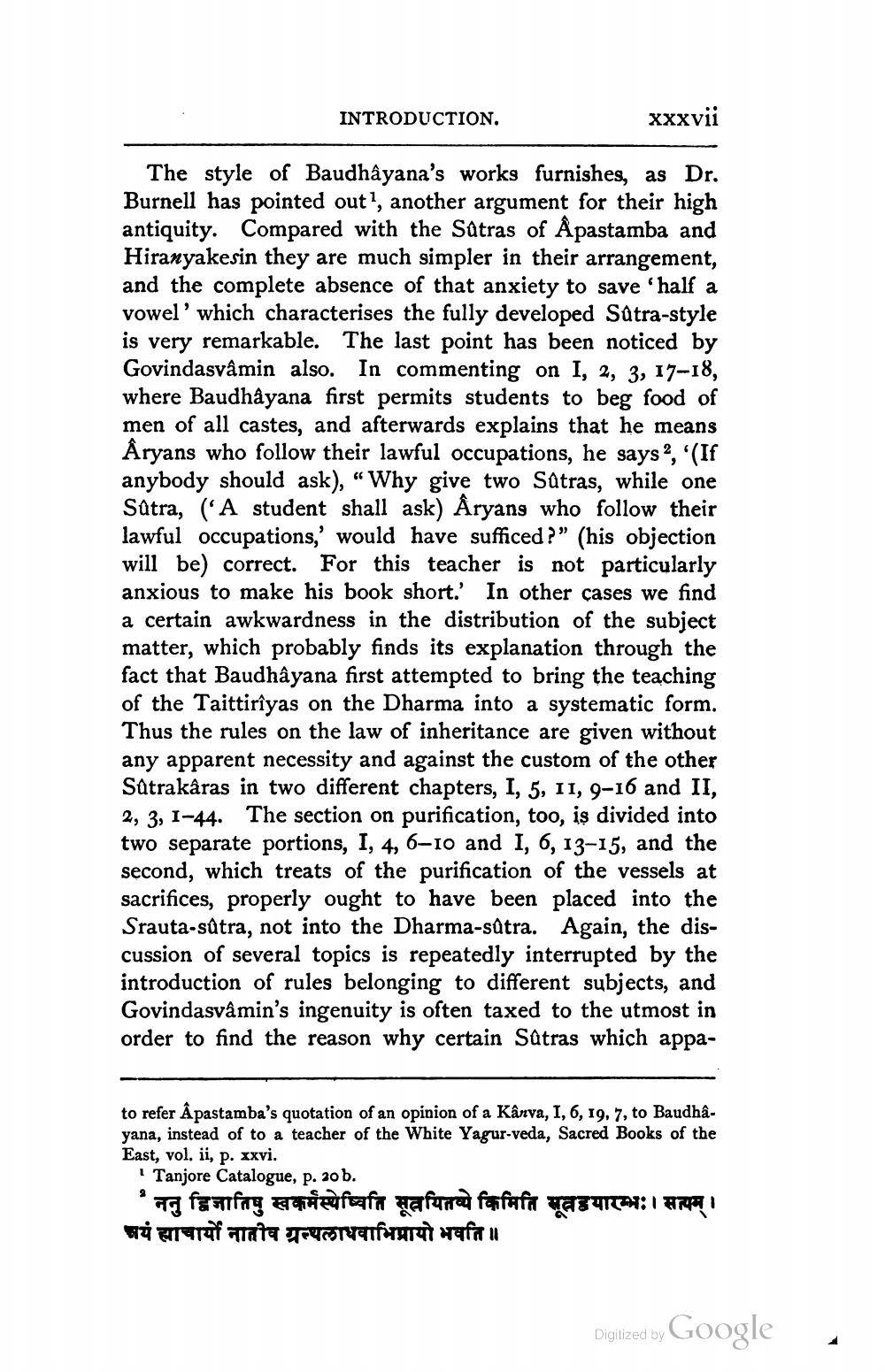________________
INTRODUCTION.
xxxvii
The style of Baudhâyana's works furnishes, as Dr. Burnell has pointed out?, another argument for their high antiquity. Compared with the Satras of Åpastamba and Hiranyakesin they are much simpler in their arrangement, and the complete absence of that anxiety to save 'half a vowel' which characterises the fully developed Satra-style is very remarkable. The last point has been noticed by Govindasvâmin also. In commenting on I, 2, 3, 17-18, where Baudhayana first permits students to beg food of men of all castes, and afterwards explains that he means Åryans who follow their lawful occupations, he says, '(If anybody should ask), “Why give two Satras, while one Satra, (A student shall ask) Åryans who follow their lawful occupations,' would have sufficed?" (his objection will be) correct. For this teacher is not particularly anxious to make his book short.' In other cases we find a certain awkwardness in the distribution of the subject matter, which probably finds its explanation through the fact that Baudhâyana first attempted to bring the teaching of the Taittirîyas on the Dharma into a systematic form. Thus the rules on the law of inheritance are given without any apparent necessity and against the custom of the other Satrakâras in two different chapters, I, 5, 11, 9-16 and II, 2, 3, 1-44. The section on purification, too, is divided into two separate portions, I, 4, 6–10 and I, 6, 13-15, and the second, which treats of the purification of the vessels at sacrifices, properly ought to have been placed into the Srauta-sútra, not into the Dharma-sätra. Again, the discussion of several topics is repeatedly interrupted by the introduction of rules belonging to different subjects, and Govindasvâmin's ingenuity is often taxed to the utmost in order to find the reason why certain Satras which appa
to refer Åpastamba's quotation of an opinion of a Kânva, I, 6, 19, 7, to Baudhâyana, instead of to a teacher of the White Yagur-veda, Sacred Books of the East, vol. ii, p. xxvi. * Tanjore Catalogue, p. 20 b.
ननु द्विजातिषु खकर्मस्थेष्विति सूवयितव्ये किमिति सूबहयारम्भः। सत्यम् । अयं ह्याचार्यों नाहीव ग्रन्थलाधवाभिप्रायो भवति ॥
Digitized by Google




